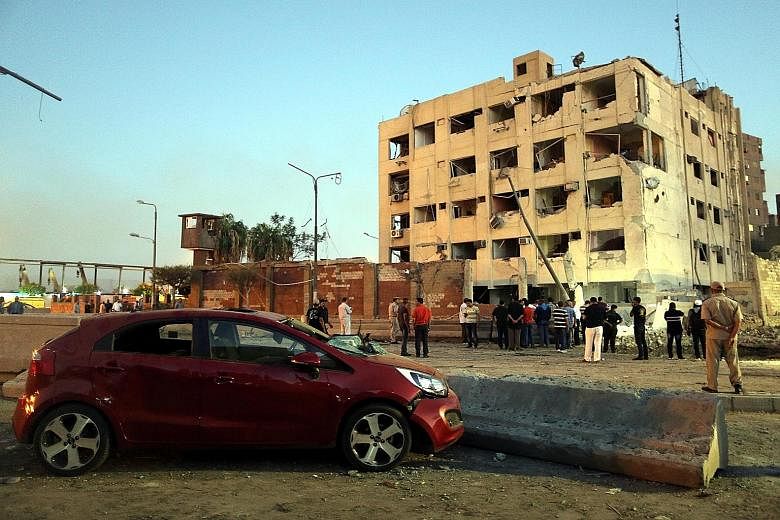CAIRO • Neighbours are growing more suspicious of strangers asking questions or taking pictures. Blast walls and other barriers are crowding the streets. Commuters say they have grown accustomed to changing their routes to avoid traffic snarled by the inevitable security cordons after each new explosion.
Nearly two years of escalating bombings in and around the Egyptian capital are gradually changing the feel of the city, which was for decades a bastion of stability, especially compared with Arab capitals like Beirut or Baghdad.
"The streets are empty, the places are empty, people have not left their houses," restaurant owner Dina Abou el-Souod said after the latest blast. Militants calling themselves part of the Islamic State in Iraq and Syria (ISIS) claimed responsibility for the 2am explosion on Thursday that damaged a security agency headquarters and wounded at least 29 people.
"We feel the effects every day," Ms Abou el-Souod said.
The Arab Spring uprising that removed president Hosni Mubarak in 2011 set off waves of street protests. Now the military ouster of president Mohamed Mursi of the Muslim Brotherhood two years ago has ushered in a new period of anti-government violence.
A long series of bombings has scared away investors, dashed hopes for the recovery of tourism and reinforced a government crackdown on almost any dissent in the name of battling terrorism.
Even the current government's most enthusiastic supporters say that they see no end in sight to the bombings. Instead, residents say they focus on the limited nature of the violence so far.
In interviews with The New York Times on Thursday, they emphasised that none of the attacks to date have caused large-scale casualties among Egyptian civilians. Most have targeted police or government buildings, judicial or security officials, empty businesses or utilities.
Ms Abou el-Souod said she had felt afraid of the Mursi government, fearing that Islamists might impose strict moral codes on Egyptians. But in more tangible ways, she said, "we feel less secure these days".
Urban studies researcher Marwa Barakat said the bombings were changing "the built environment" through an accretion of added barriers and road closings to protect embassies, government headquarters, police stations and other potential targets. And after each bombing, "the security surrounding the area makes the traffic crazy".
But the biggest change, she said, was the rising suspicion among ordinary Egyptians, many fearful of attacks on their own neighbourhood. Earlier this week, residents in one area tried to stop her from taking pictures of a bridge, she said.
"A lot of shallow suspicions are created by these bombings," Ms Barakat said, and the result has reduced the "public space" for politics and civil society. "People don't want to participate any more," she said, "and the bombings are one of the reasons."
NEW YORK TIMES

